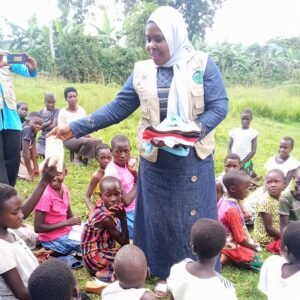Championing Women’s Empowerment in Uganda
Introduction
In the heart of East Africa, Uganda is witnessing a transformative journey—one that speaks to the resilience, strength, and potential of its women. Women’s empowerment in Uganda is more than a buzzword; it’s a beacon of hope, a testament to the undying spirit of its people, and a critical component in the nation’s journey towards sustainable development and equality. This article delves into the strides Uganda is making in empowering its women and the challenges it continues to face.
The Current Landscape of Women’s Empowerment in Uganda
Uganda, like many of its African counterparts, has been grappling with gender disparities deeply rooted in cultural, economic, and social practices. However, recent years have seen significant strides in addressing these challenges. From legal reforms to grassroots initiatives, efforts to empower women are gaining momentum.
Education: The Foundation of Empowerment
Education is a critical pillar of women’s empowerment in Uganda. Despite historical barriers, there has been a concerted push to increase girls’ access to education at all levels. Initiatives like the Universal Primary Education (UPE) program have significantly increased school enrollment for girls. Moreover, vocational training and adult education programs are equipping women with essential skills for the modern workforce.
Economic Independence: A Gateway to Freedom
Economic empowerment is crucial in a country where women have traditionally been relegated to the margins of the economy. Microfinance schemes, agricultural cooperatives, and small business training programs are now commonplace, designed to help women become financially independent and self-reliant. These initiatives have not only improved family livelihoods but also increased women’s participation in decision-making at home and in their communities.
Health and Reproductive Rights: Ensuring Well-being
Women’s health, particularly reproductive health, is fundamental to empowerment. Uganda has made progress in increasing access to healthcare, reducing maternal mortality, and raising awareness about reproductive rights. However, challenges such as limited resources, cultural norms, and inadequate infrastructure still hinder comprehensive access to health services.
Overcoming Legal and Societal Barriers
Uganda’s legal framework has evolved to protect and promote women’s rights. Laws addressing domestic violence, property rights, and equal employment opportunities have been enacted. Despite these legal advancements, the implementation and enforcement of these laws remain inconsistent, often hampered by traditional norms and insufficient awareness.
Challenges and the Road Ahead
Despite significant progress, the journey is far from over. Issues like gender-based violence, limited access to leadership roles, and the disproportionate effects of poverty on women persist. Addressing these challenges requires a multifaceted approach involving government policy, community engagement, and continued support from NGOs and international partners.
Conclusion: A Future Forged by Empowered Women
The empowerment of Ugandan women is a beacon of hope, illuminating a path towards a more equitable and prosperous future. As these efforts continue to bear fruit, the narrative of Uganda’s women is being rewritten from one of vulnerability to one of empowerment and resilience. The journey is ongoing, and its success lies in the unwavering spirit of Uganda’s women, the commitment of its government, and the solidarity of the global community.



